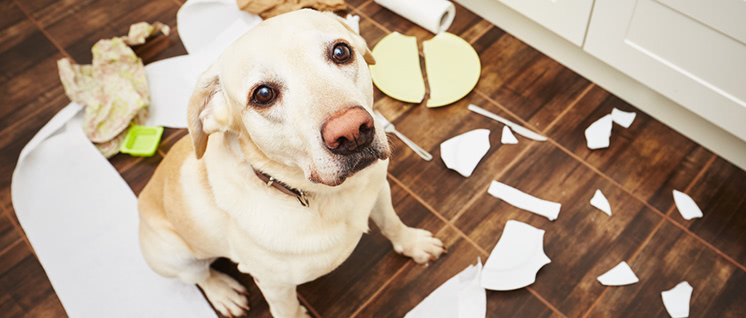Welcome back to our series on safety tips for your Furry Friends, in and around your home. We all know that dangers lurk from the great outdoors to your kitchen and everywhere in between!
Are YOU one of the 84.9 million households in the United States who cohabitates with a Furry Friend? I am also one of the 67% of ALL households who do! I’m sure you’re not surprised to hear that pet-parent’s spending exceeds $72 billion, according to the 2019-2020 American Pet Product’s Association (APPA) National Pet Owners Survey.
Some of the safety rules are simply “Good Old Common Sense”, like keeping small objects and items that can easily be eaten or swallowed out of their way. As for other dangers, just look around from your pet’s point of view and see what objects might be tempting and troublesome. Just like you would baby-proof a home, the same is true for pet-proofing.
We all want to keep those emergency trips to the Vet at a minimum!
Hazards in the Kitchen
- Many foods we enjoy can be harmful or potentially fatal to dogs and cats. The following items should be kept off your furry friend’s menu: grapes/raisins, chocolate, onions, coffee grounds, tea, macadamia nuts, alcohol, fatty foods, salt, avocado, garlic, chewing gum, candy and breath fresheners containing xylitol. Of course, keep garbage out of a pet’s reach as rotting food contains mold or bacteria that could cause food poisoning.
- Many household cleaners can be safely used around cats and dogs. However, be sure to read the labels carefully. If the label indicates “keep pets and children away from area until dry”, follow these directions to prevent possible health risks. Products containing bleach can cause stomach upset, drooling, vomiting, diarrhea and/or severe burns, if swallowed. Also, some detergents can produce a similar reaction and cats can be particularly sensitive to products that contain phenols. As a rule, store all cleaning products in a secure location, in their original packaging or in a clearly labeled and well-sealed container.
- As with household cleaners, pesticides need to be monitored just as carefully. Flea and tick products labeled “for use on dogs only” should not be applied to cats or any other species. Always consult your Vet about the safe use of these products for your pet. To add to the dangers, if rat or mouse poison is ingested, serious or even life-threatening problems can result. Therefore, keep all rodenticides completely inaccessible and in a secure location.
WHAT TO DO IF YOUR PET IS POISONED?
Don’t wait! Call your Vet or the ASPCA Animal Poison Control Center at 888-426-4435. Time is critical for successfully treating accidental poisoning. Be prepared to state your dog or cat’s breed, age, weight and any symptoms. Have the product container or plant sample nearby to assist with identification so the appropriate treatment recommendations can be made.
We hope you found this post to be helpful, informative and interesting … Thinking of BUYING or SELLING a home in the Spring Hill, Brooksville, Weeki Wachee or the Hernando Beach areas of Hernando County, Florida? If you’re new to the area, be sure to see what Hernando County has to offer you and your family! In the meantime, visit www.GailSellsFloridaHomes.com to explore our state-of-the-art MLS Map Search Feature where BUYERS can SEARCH MLS listings and SELLERS can SEE what their competition is doing!
Until then… it’s all about YOU!


